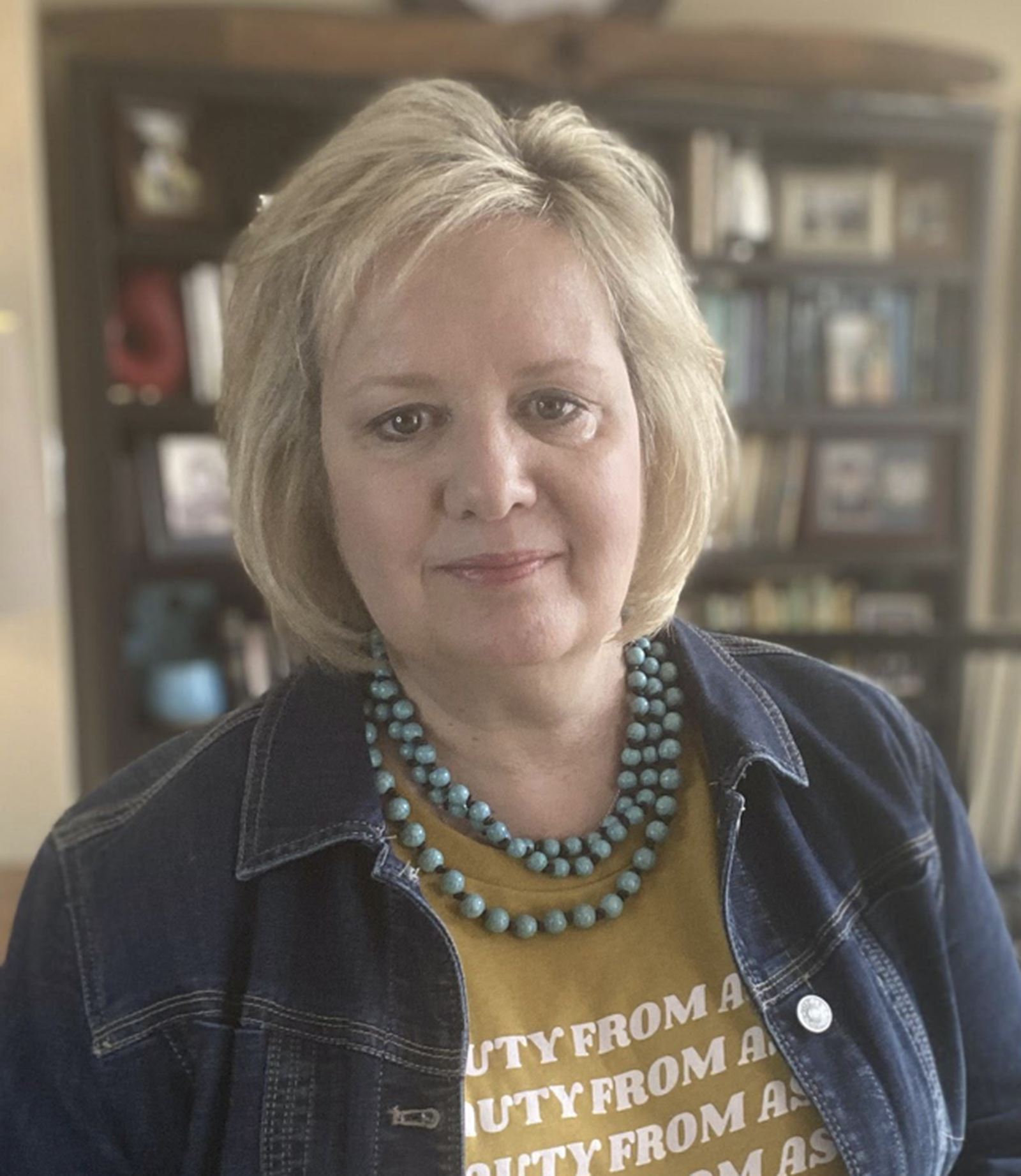
No one wants to talk about it. The topic is uncomfortable. Sexual assault and exploitation is never something we want to discuss. We change the subject or avoid the statistics, but it’s hard to ignore when a loved one shares a survivor story. So, when they do, how we respond is crucial.
According to the Rape, Abuse & Incest National Network (RAINN), sexual assault and exploitation is as an unwanted or forced sexual act committed without consent. Every 73 seconds, an American is sexually assaulted, and every nine minutes, the victim is a child. When a woman or man is assaulted, they lose their power and their voice. This makes talking about sexual abuse or exploitation difficult for survivors.
Some survivors wait years and decades for the right opportunity to tell their story. The first person may be family a member or friend. When they do, they need a compassionate and caring response. Think of the way Jesus responded to the woman at the well or the woman accused of adultery brought before Him in the streets of Jerusalem. Jesus poured out love and compassion, not accusations or condemnation.
If a survivor shares their story of abuse, we must be careful to respond like Jesus, with love and compassion. Our first words could help or harm. To help you find the right words and avoid words that harm, here are 9 things to never say to a survivor of abuse:
Photo Credit: © Getty Images

1. Why didn’t you tell someone?
Survivors live in fear because most have been threatened in some way by their abuser. They are either intimidated by threats of shaming or possible physical harm to them or their families. For some, they have no safe person with whom they can share their fear and abuse. For others, the shame of being abused keeps them silent. But when survivors can tell their story, it’s the first step to healing. When a survivor shares their story, you have been given a gift of trust. You can say, “I’m listening; tell me whatever you can.”
“God is our refuge and strength, an ever-present help in trouble.” (Psalm 46:1)
Photo Credit: © Unsplash

2. What were you wearing?
When sexual assault or exploitation happens, it is never the survivor’s fault. Assault is a violent action based on power and manipulation over a perceived, weaker victim. It doesn’t matter what he or she is wearing or said or where they happened to be. No one asks for sexual assault. The more appropriate response would be to listen without judgment. Instead, ask a survivor, “How can I help?”
“Carry each other’s burdens, and in this way you will fulfill the law of Christ.” (Galatians 6:2)
Photo Credit: © Getty Images

3. Try to forget about it.
It’s not that simple. Survivors would love to forget about being assaulted, raped, or exploited, but it is nearly impossible. Our minds need to fill the gaps and make sense of the details when we experience trauma. So, for survivors, they think about the event over and over, looking for answers. Each time they are victimized again and each time brings more shame and fear. With help, survivors can control their thoughts, giving them less impact. They can learn to take their thoughts captive. But this takes time and patience. Instead of suggesting they forget, encourage survivors to seek help to deal with invading thoughts. You could say to a survivor, “I’m sorry this happened to you. How can I help?”
“The Lord is good. His unfailing love continues forever, and his faithfulness continues to each generation.” (Psalm 100:5)
Photo Credit: © Getty Images

4. You should keep this to yourself.
Keeping secrets leads to shame. Sharing secrets leads to freedom. When we suggest someone should keep a secret, we are saying there is something wrong. By hiding a secret, we are saying their story is not good enough to come out into the light. It must be hidden.
For survivors, it’s the secret of abuse that keeps them bound to shame and misplaced guilt. Survivors telling their stories is the key to freedom from shame. Rather, make yourself a person who will listen without judgment or condemnation where a survivor can take the first step on the road to healing.
“For nothing is hidden that will not be made manifest, nor is anything secret that will not be known and come to light.” (Luke 8:17)
Photo Credit: © Getty Images/Shurkin Son

5. You’ll get over it.
A survivor will never forget, and each time they think about their abuse, they relive it. So, they never get over it. They simply learn to live with it. They learn to cope. Healing begins when they can tell their trauma story. Being able to share their story is essential to healing. Each time a survivor can share their story, their load is a little bit lighter. The pain is a little less severe. Ask your survivor, instead, what you can do to help them carry the load.
“And the peace of God, which surpasses all comprehension, will guard your hearts and your minds in Christ Jesus.” (Philippians 4:7)
Photo Credit: © Getty Images

6. Are you sure that’s what happened?
This question seems like you want to help, maybe suggesting the event was not as bad as it looks. Some survivors try to minimize the trauma, too, attempting to convince themselves it was just a dream. To a survivor, some of the details may be a bit fuzzy. The reason is that If you are attacked or assaulted, your brain goes into overdrive choosing between fighting or turning to flee. Your brain has a tremendous capacity to protect you from realities that are too painful to bear. So, some of the details may be cloudy, but that does not mean the attack did not happen. Instead, assure your survivor that you do not need to know the details, only how you can help.
“Love does not delight in evil but rejoices with the truth. It always protects, always trusts, always hopes, always perseveres.” (1 Corinthians 13:6-7)
Photo Credit: © Getty Images/ismagilovjpg

7. At least you weren’t physically hurt.
Physical pain would be more natural to overcome, and the scars are easier to cover. Sexual assault and exploitation scars, on the other hand, are difficult to see. They live in a survivor’s brokenness. Most survivors go through a gamut of ill-fitting coping mechanisms that include addiction, alcoholism, and broken relationships, creating even more scars. The brokenness and pain of sexual trauma do not show on the outside. Instead, it manifests in a life of pain and wrong choices. What a survivor needs most is unconditional love and a nonjudgmental ear.
“Above all, love each other deeply, because love covers over a multitude of sins.” (1 Peter 4:8)
Photo Credit: © Getty/Serghei-Turcanu

8. Why are you talking about this now?
Something survivors struggle with the most are triggers. Sights, sounds, smells, and moments can trigger the memory of abuse. Usually, that’s when a survivor may choose to talk about their abuse. Other times, the reason could be they trust the listener completely. Either way, the moment a survivor shares their story, the road to healing opens. If you have the opportunity to be a trusted listener, remember that you have received a gift. Cherish that gift and be a safe person for a survivor to share their story.
“Dear children, let us not love with words or speech but with actions and in truth.” (1 John 3:18)
Photo Credit: © Getty Images/Sam Thomas

9. You should be more careful.
As mentioned before, no one wants to be sexually assaulted or exploited, no matter where we go. Sexual abuse can happen anywhere, on the job, at school, or in your neighborhood. Evil lives everywhere. Suggesting that a survivor was in the wrong place at the wrong time shifts the blame from the abuser to the abused. Instead, remind your survivor he or she is always safe when they are with you. Make the place where you are the place they want to be.
“The Lord is my rock, my fortress and my deliverer; my God is my rock, in whom I take refuge, my shield, and the horn of my salvation, my stronghold.” (Psalm 18:4)
When Jesus met the broken and hurting, He healed their wounds and afflictions with grace and kindness. “He heals the brokenhearted and binds up their wounds” (Psalm 147:3). They were met with compassion and care. An encounter with Him was transformative. The same is true when a survivor’s disclosure is met with compassion; healing begins. When survivors share their stories, they are transformed. When you listen, they need to be assured, cared about, and listened to. Meet that person with grace and kindness, be the person where transformation and healing begins.
 Tamela Turbeville wants every woman surviving abuse to know God loves them, and that they are worthy and wanted. Most of all, healing is possible. She began Living One Word to write and share how God redeems the lives of survivors and you can read more about Tamela and her healing journey at www.livingoneword.com, on Facebook, and Instagram.
Tamela Turbeville wants every woman surviving abuse to know God loves them, and that they are worthy and wanted. Most of all, healing is possible. She began Living One Word to write and share how God redeems the lives of survivors and you can read more about Tamela and her healing journey at www.livingoneword.com, on Facebook, and Instagram.
Photo Credit: © Getty Images
Originally published Monday, 27 April 2020.










